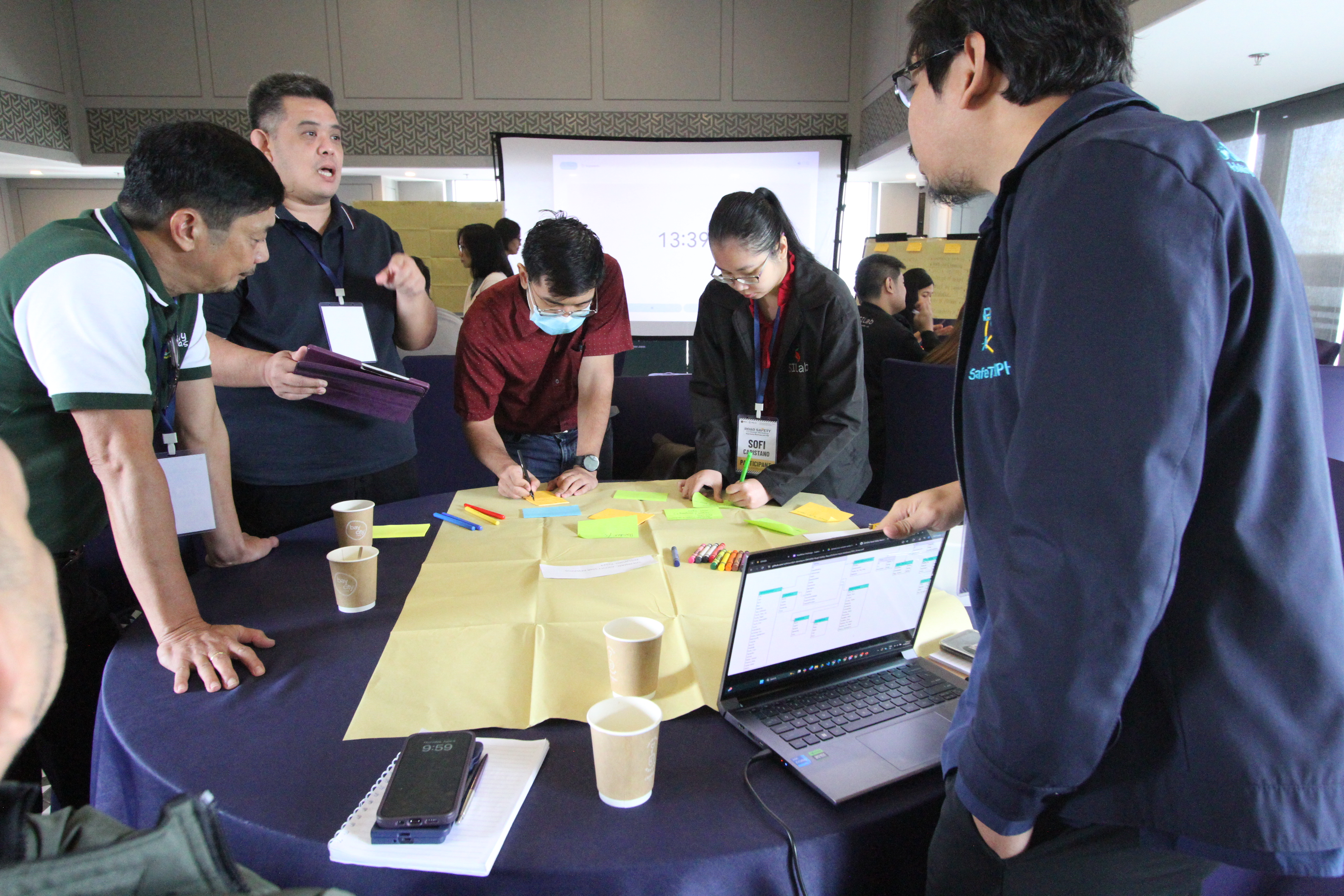Text by: Jennifer Manongdo
Photos by: Angelou Mendoza

The National Telehealth Center of the National Institutes of Health hosted a Road Safety Data Co-Design Workshop on June 4-5, 2025, at Lyf Hotel, Ermita, Manila, to support the creation of interoperable health information systems as required under the Universal Health Care Law.
The two-day event gathered traffic enforcers, emergency medical services (EMS) teams, trauma clinicians, policy-makers, and partners from DOH, MMDA, LTO, Philippine Red Cross, UNICEF Philippines, and other sectors who mapped the road crash-to-care design according to workflows established by each agency or emergency care company. The elements in the road traffic incidents discussed in the activities now form the minimum data set that will be linked to HL7 Fast Healthcare Interoperability Resources or FHIR, an international health-data messaging standard that lets clinical and administrative health data be exchanged quickly, seamlessly, and securely. This will allow emergency responders, hospitals, and government agencies to access pertinent patient information anywhere and anytime, resulting in faster and smarter life-saving care.
The resulting initial blueprint seeks to support the implementation of the Philippine Road Safety Action Plan, strengthen regional road-safety management, and help the country cut road deaths by 50 percent by 2030.

#FP6 #AccessibleUPLeadership #Innovationsforlifelonglearningdedicatedtoservice